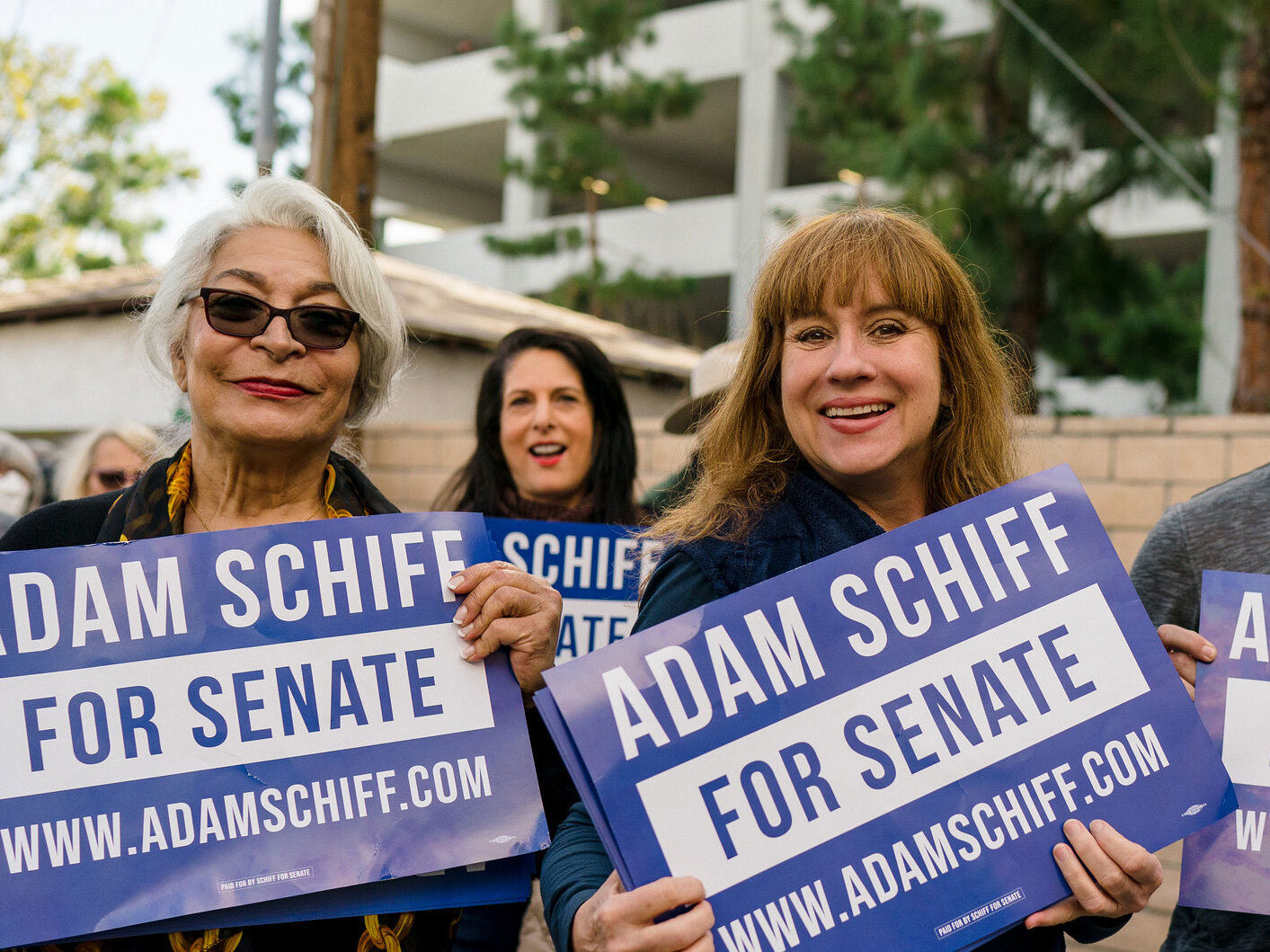
ADAM'S PLANS FOR THE SENATE
PROTECTING OUR PLANET
Read on
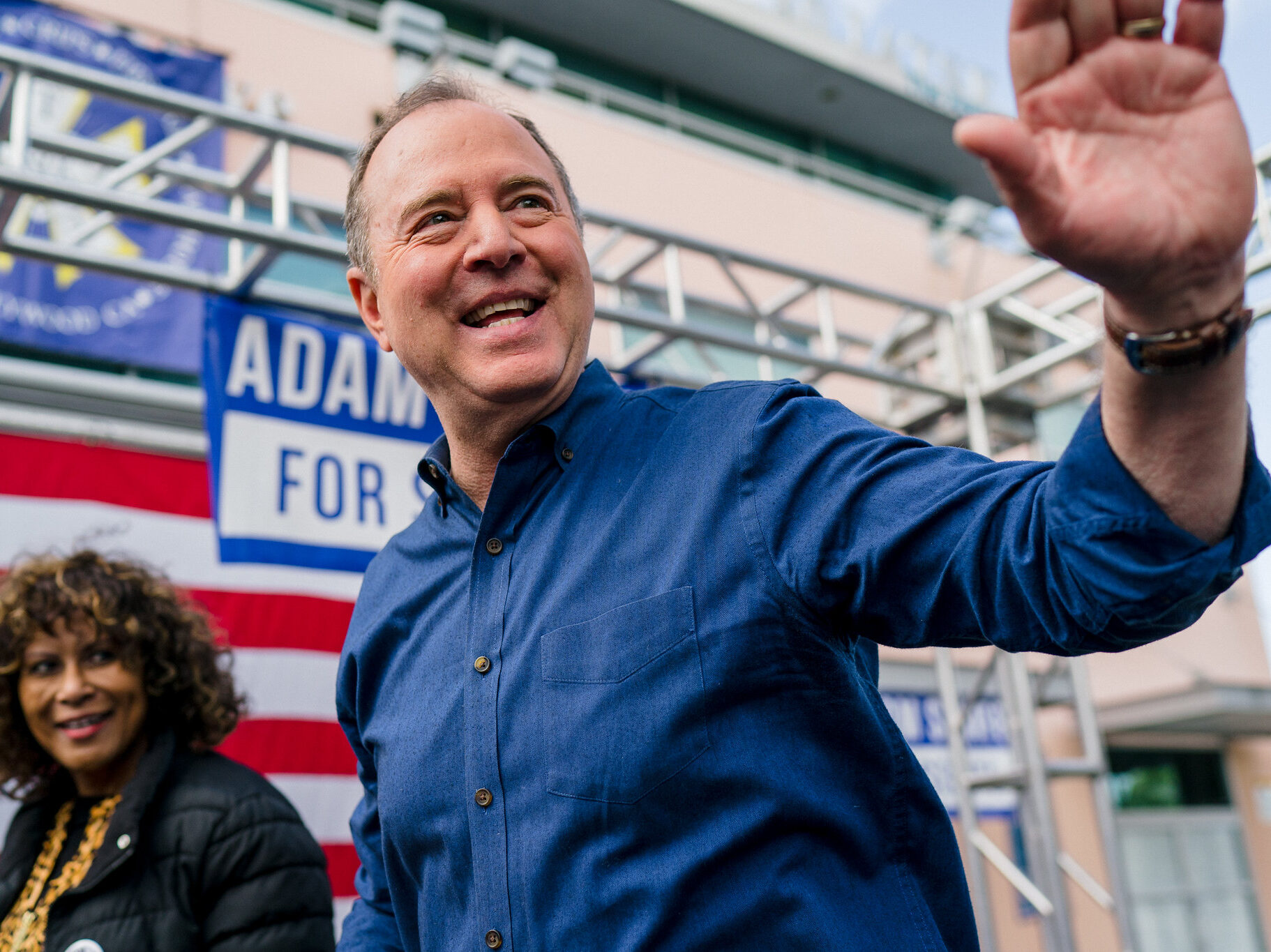
INVESTING IN RENEWABLE ENERGY AND DECARBONIZATION
End Federal Subsidies For Fossil Fuel Production
Direct subsidies to the fossil fuel industry in the U.S. total approximately $20 billion per year with 80% going toward oil and gas. The federal government can generate $13 billion in tax revenue over a decade by eliminating tax subsidies that benefit the oil industry and incentivize drilling new oil wells.
States Should Adopt Rules To Advance Environmental Justice
Environmental justice must be at the forefront of the green energy transition to make sure communities that have been impacted by environmental hazards aren’t responsible for the cost of the transition to a green economy. The Inland Empire has seen vast unregulated warehouse expansion, resulting in disproportionately high rates of asthma, and communities like Pajaro have been devastated by severe flooding due to aging levees. The federal government should incentivize states to adopt rules to advance equity in their transition to green energy and ensure that those who have been impacted by environmental hazards have a seat at the table when planning the transition to a green economy.
Increase Federal Support For Clean Energy Innovation And Tech Innovator Hubs
The Department of Energy funds a clean energy innovation program at the level of $5 million per year for green tech incubators in the United States. Increasing funding for this DOE program to $475 million, a similar level to Advanced Research Projects Agency-E (ARPA-E), would allow smaller incubators to pilot new programs to address the climate crisis.
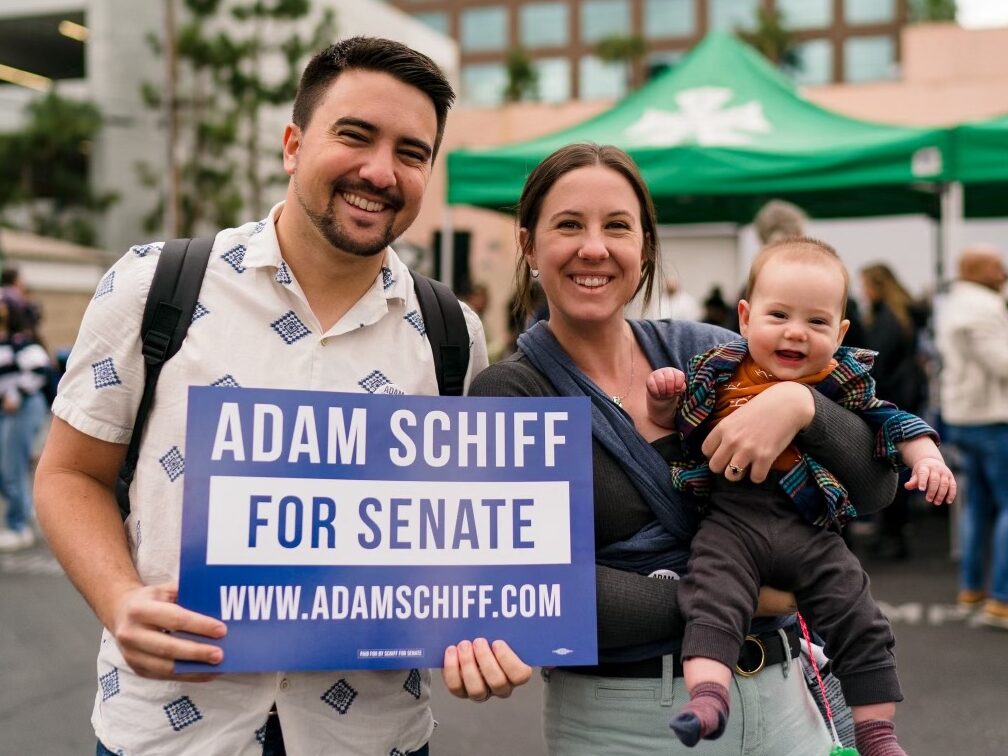
REDUCING ENERGY COSTS AND INCREASING ENERGY RESILIENCY
Increase Grid Resiliency Through Community-Level Microgrids
Climate change has led to more extreme weather resulting in power outages across California. We can increase grid resiliency by making it easier for communities to experiment with community microgrids–groups of coordinated solar and battery energy storage systems that diversify power sources and increase resiliency.
Address Price Gouging In The Energy Market
California residents have been subjected to high gas prices and exorbitant utility bills. Instead of incentivizing oil production, we should be slapping a windfall profits tax on oil companies for gouging consumers. Utility companies that have for years failed to make critical changes to address increasing wildfire risk are now passing the cost of those changes onto customers. Congress should also pass legislation to authorize the Federal Trade Commission (FTC) and Federal Energy Regulatory Commission (FERC) to penalize utility companies that take advantage of major disasters to increase consumer prices.
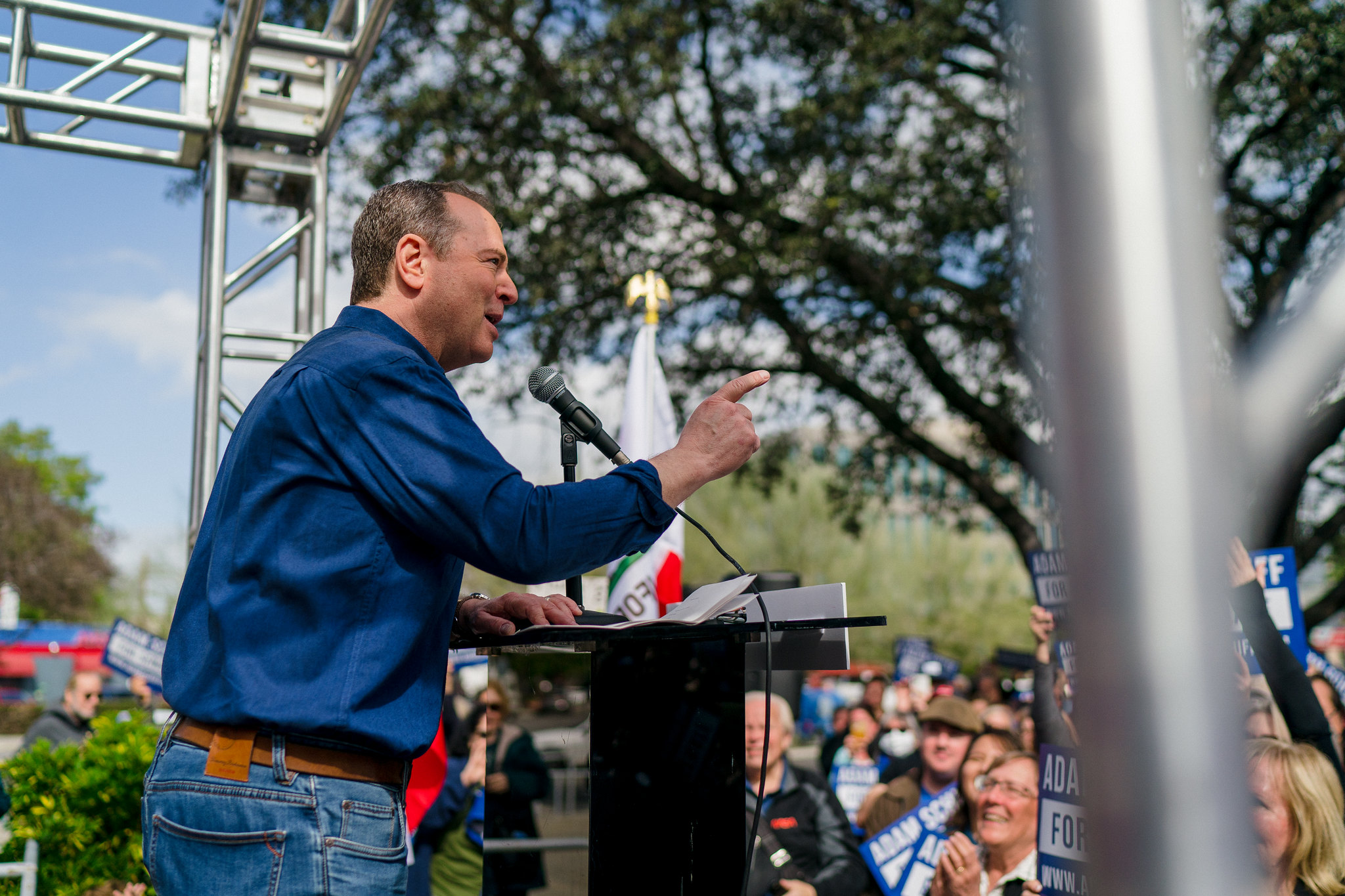
REDUCING OUR TRANSPORTATION SECTOR CARBON EMISSIONS
Make The EV Tax Credit A Point Of Sale Rebate For All EV Sales
Plenty of people want to purchase electric vehicles but they can’t afford to wait until tax season to claim the EV Tax Credit. While people are allowed to claim the EV Tax Credit at the time of purchase, this is contingent on dealership participation. Requiring dealership participation to ensure that all buyers can claim the EV Tax Credit at the time of sale will allow customers to receive the discount when they purchase an EV rather than having to pay full price up front and waiting to claim the credit up to a year later. This makes the credit more accessible to low and middle income families and ensures that they are able to benefit from the transition to a zero-emission fleet.
Set An Ambitious Decarbonization Date For The Aviation Sector
The aviation sector consumes 100 billion gallons of fossil fuels and emits 1 billion tons of CO2 annually. In 2022, aviation accounted for 2% of global energy-related CO2 emissions. Our strategy to address climate change should address the aviation sector by setting a date by which the aviation sector must bring their carbon emissions to zero.
Make Shipping Greener
Cargo shipping is responsible for nearly 3% of global greenhouse gas emissions. We need to make the shipping industry greener by funding efforts to decarbonize the shipping industry through investing in alternative fuel sources such as green methanol, ammonia, and hydrogen, as well as the necessary infrastructure upgrades to shipping vessels and ports to meet the International Maritime Organization’s goal of reducing emissions by at least 20% by 2030, and at least 70% by 2040.
Invest In “Last Mile” Infrastructure
Many Californians lack reliable transportation between their homes and public transportation.The distance between public transportation and an individual’s starting and ending point on their journey — often known as the “First Mile and Last Mile” problem — makes it impossible for some people to rely solely on public transportation. We should be investing in “last mile” solutions such as passing the E-BIKE Act to create a tax credit to cover 30% of the cost of an E-BIKE, and offering subsidies for bike share programs, scooters, and even ride share companies that can bridge these gaps.
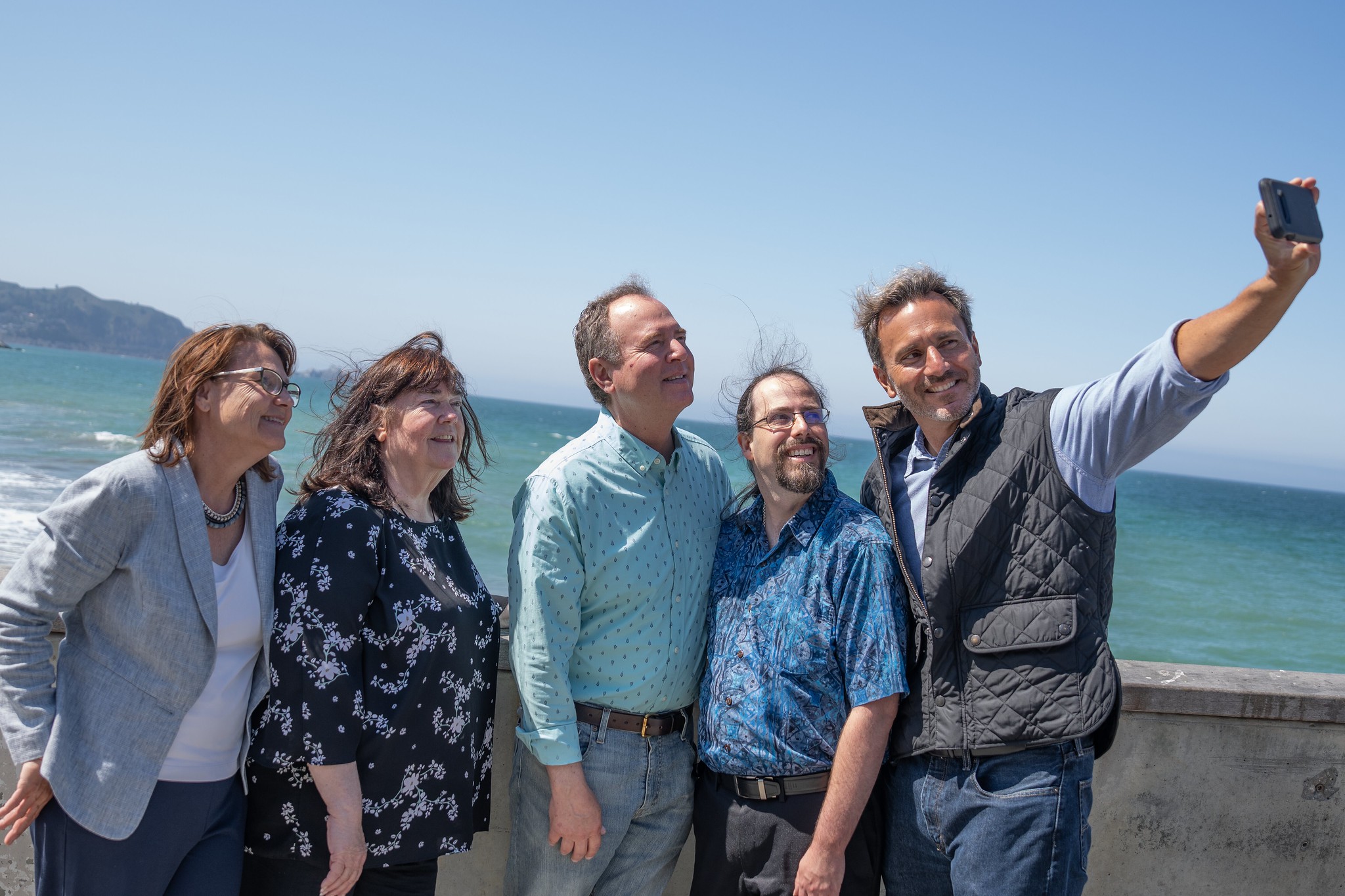
CREATING GREEN JOBS AND ENSURE A JUST TRANSITION
Pass The Green New Deal
The Green New Deal calls for the creation of millions of green jobs, along with access to nature, clean air and water, healthy food, a sustainable environment, and community resiliency. We need to pass the Green New Deal to invest in manufacturing and industry to spur growth in the use of clean energy, restore ecosystems through land preservation, afforestation, and science-based projects, support family farming, invest in sustainable farming, and build a more sustainable and equitable food system, and invest in communities affected by climate change.
Make A Major National Investment In A Battery Repurposing Program
Investing in a national battery recycling and repurposing program would reduce our dependence on foreign powers that harvest and process the minerals necessary for battery creation and create jobs in the process. For example, an older EV battery may no longer be useful for long-distance driving, but it could still have enough storage capacity to ease strain on the power grid by providing backup electricity when it’s needed most.
Incentivize Fossil Fuel Employers To Keep Displaced Fossil Fuel Workers On Their Payroll
We can’t have a just transition to a green economy if we leave workers and their communities behind. We should incentivize fossil fuel employers to keep displaced fossil fuel workers on their payroll, by redirecting these workers to perform other duties at the company. This will help alleviate the financial stress on workers as we transition to renewable energy sources. We can do this by creating an incentive based on the Employee Retention Tax Credit (ERTC) created under the CARES Act.
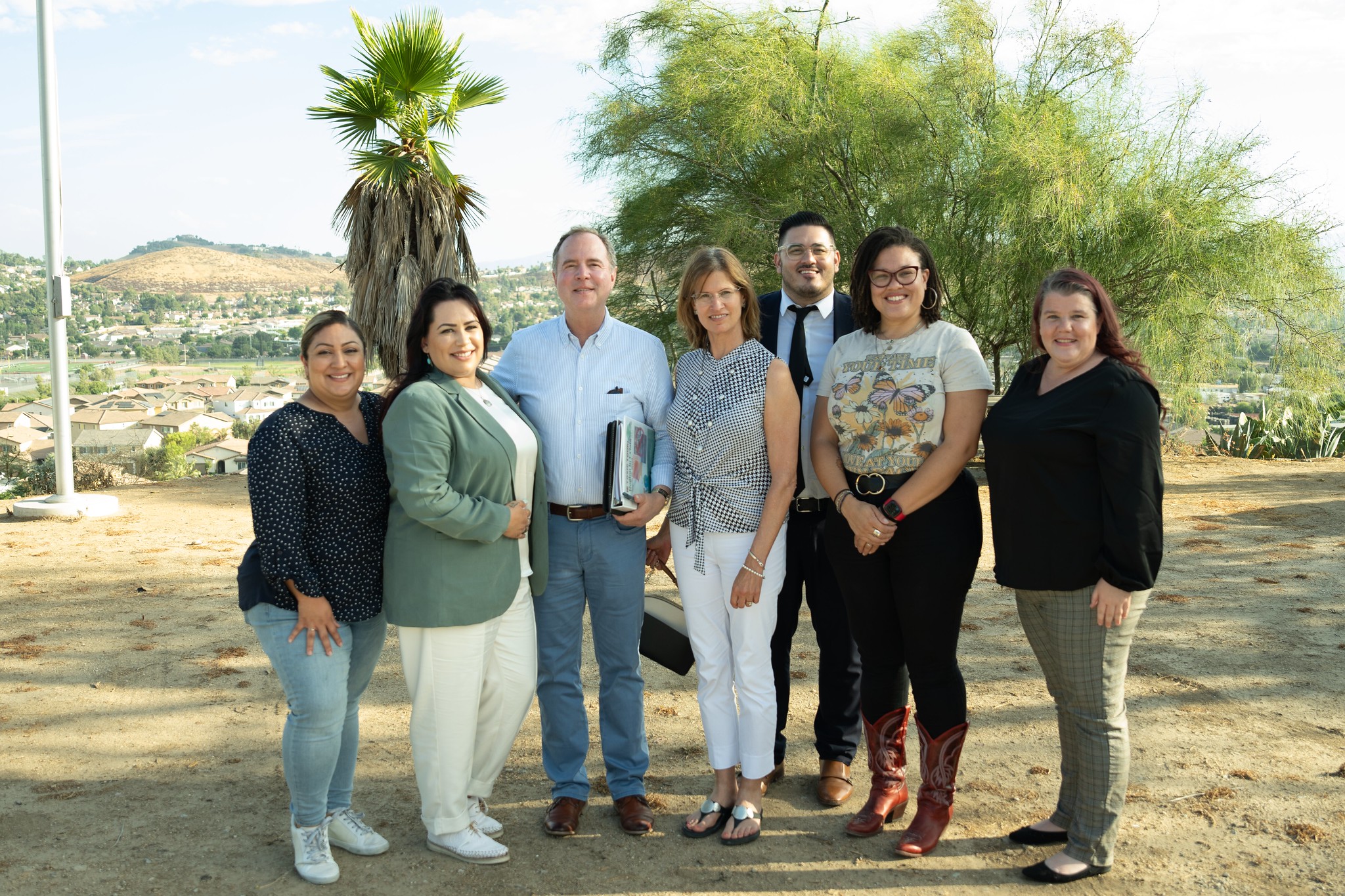
GREENING OUR PUBLIC SPACES, PARTICULARLY ENVIRONMENTAL INJUSTICE IMPACTED URBAN COMMUNITIES
Bringing Tree Cover To Urban Areas
Low-income and environmental injustice impacted communities are less likely to have access to green spaces and tree cover than other communities – leaving people living in those neighborhoods more susceptible to higher temperatures and heat-related health issues. That’s why we need to pass bills like Adam’s Climate Change Relief For Urban Areas bill, which will prioritize community forestry assistance in areas that lack green spaces and create a $30 million pilot grant program to create urban gardens at schools in those neighborhoods.
Invest In Increasing Access To Parks In Communities That Lack Access To Local Parks
21% of California residents live more than half a mile away from a park. Outdoor parks foster the social, environmental, and economic health that help communities and kids thrive, and do not have a large carbon footprint. To address this recreation deficit, we must increase funding for outdoor recreation and green spaces by codifying the Outdoor Recreation Legacy Partnership (ORLP) program in federal law and ensure that funding will go towards the communities without adequate access to local parks.
Increase Federal Investment In Reconnecting Communities Divided By Freeways
The new roads built by the Federal-Aid Highway Act displaced half a million residents between 1957 and 1977 –the majority of whom were people of color and households with low incomes. The Infrastructure Investment and Jobs Act, allocated $1 billion to redesign or eliminate certain segments of highways, but this program has experienced extremely high demand, and more funding is needed. Congress should pass legislation to increase funding to $20 billion for these projects over 5 years.
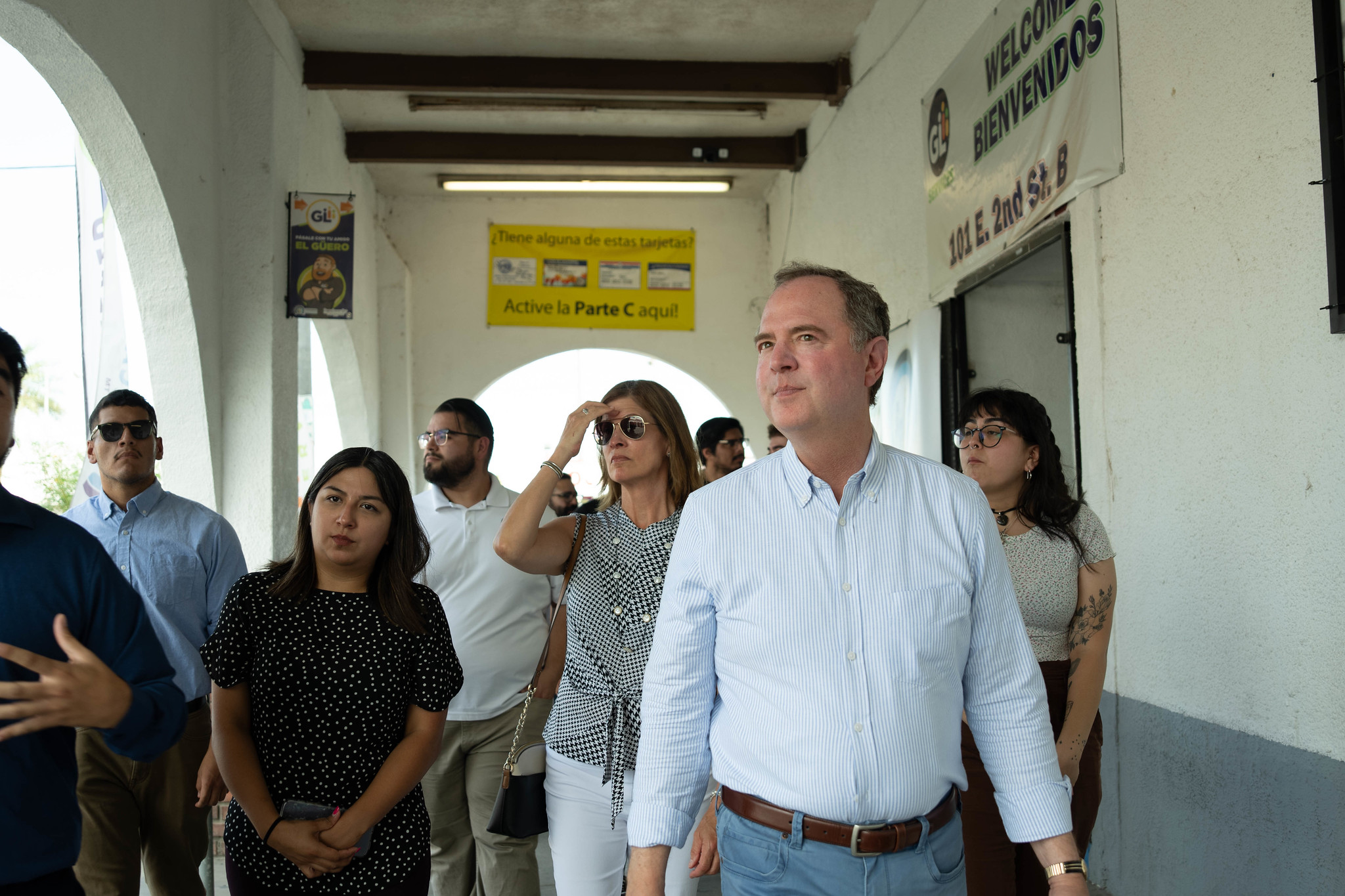
IMPROVING CALIFORNIA’S WATER INFRASTRUCTURE
Address California’s Aging Water Infrastructure and Increase Water Capture
Flooding in 2023 and early this year underscored that many of California’s regions are poorly prepared for the increasing flood risk. We need to make a substantial investment in the state’s aging water infrastructure to protect communities at risk of flooding, and capture significantly more excess water so we can use it in drought years.
Provide Robust Funding For Lead Pipe Replacement
In 2017, 18% of California K-12 campuses contained dangerously high levels of lead in their water systems and many districts cannot afford the high cost of testing and remediation. While federal and state funding will pay for some lead pipe replacement costs, cities bear the burden of paying for replacement of lead pipes in people’s homes, public buildings and businesses. The federal government should provide robust, sustained funding for lead pipe replacement, including inside homes and schools.
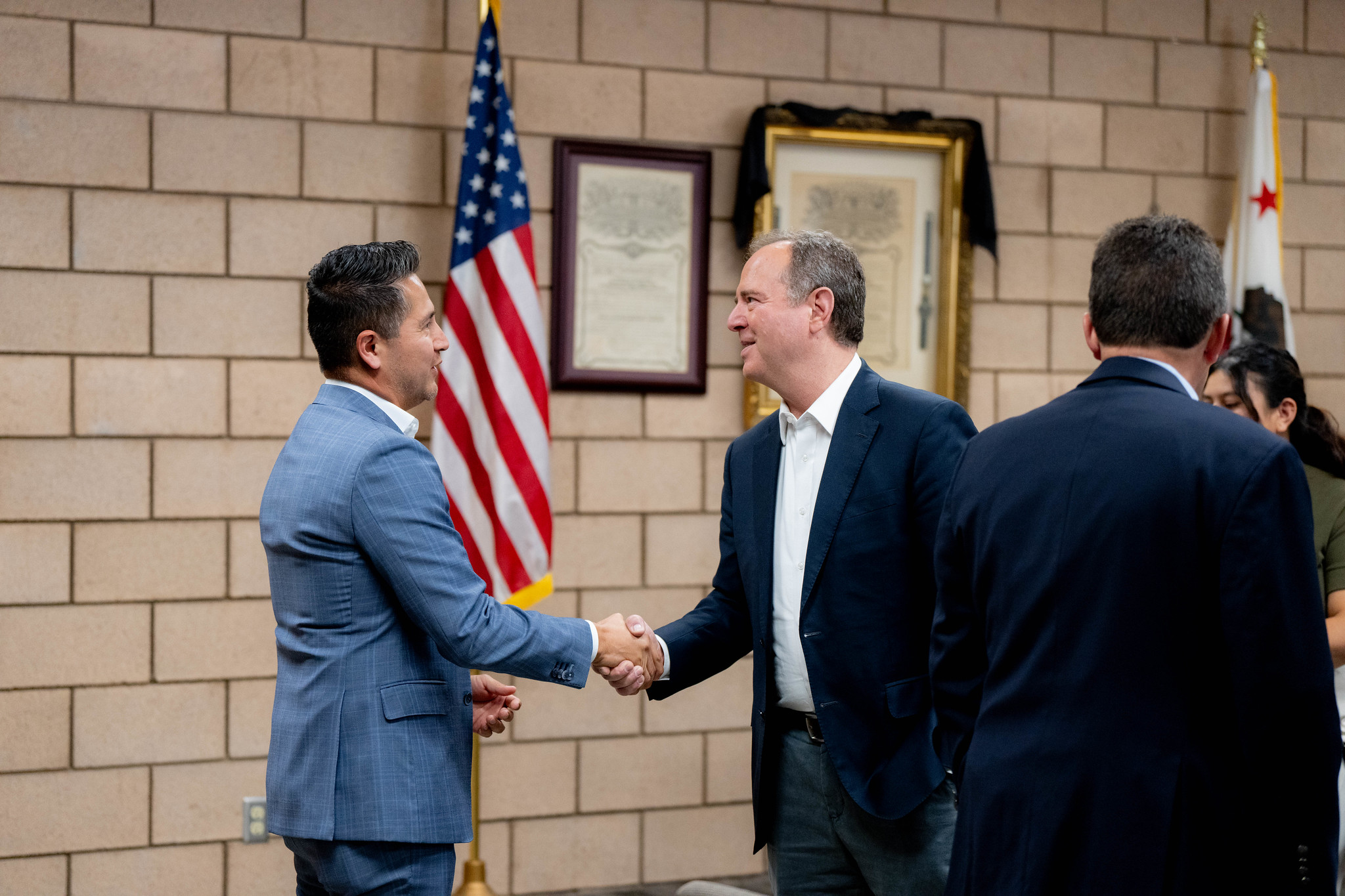
MITIGATING WILDFIRES AND THEIR IMPACT
Protect Homeowners From Environmental Financial Catastrophes
Climate change has significantly increased the risk of natural disasters and insurance companies are shifting the costs to consumers who struggle to purchase disaster coverage. We can ensure homeowners and communities have access to affordable and accessible coverage by passing Adam’s bill to create a federal catastrophic reinsurance program to insulate customers from unrestrained cost increases by offering insurers a transparent, fairly-priced public reinsurance alternative for the worst climate-driven catastrophes.
Hold Insurance Companies Accountable For Their Role In The Climate Crisis
Insurance companies are profiting from the climate crisis while refusing to insure homes in areas susceptible to the worst impacts of climate change. We need to hold these insurance companies accountable by passing Adam’s bill, The Polluter Portfolio Disclosure Act, which would require insurance companies to disclose their investments and underwritings related to coal, oil and gas projects, and fossil fuels.
Increase Investments in Co-Stewardship Of National Forests For Prescribed Burns
Half of California’s 20 deadliest wildfires occurred in the past two decades and their intensity is increasing with climate change. We can mitigate the risk of wildfires by continuing to partner with California’s Tribes to preserve native land management practices such as prescribed burning that they have successfully employed for generations. The federal government can support this strategy by increasing national investment in the USDA Forest Service’s shared stewardship agreements with Tribes that ensure Tribes can integrate their traditional knowledge into land management practices and decision making.
Invest In Firefighter Protection & Address Long Term Health Risks
Overwork and distress from intensifying wildfires have left crews of firefighters with increasing PTSD and other mental health issues. Firefighters put their long-term health on the line to protect us, and have serious exposure to toxic chemicals. As a result, they are at increased risk for cancer, cardiovascular disease, and other health conditions. Congress should direct the USDA to study ways to improve federal firefighter protection and long-term health risks associated with the occupation. Additionally, Congress should create an experimental fund to invest in technology to increase firefighter protection and reduce long term health risks.
Create Incentives For U.S. Forest Service Jobs And Wildland Federal Firefighters
The U.S. Forest Service has had chronic staffing shortages for over a decade and these staffing shortages have made it harder to contain U.S. wildfires and maintain our forests. Congress should provide salary increases, rental assistance, improvements to housing for Forest Service employees, and other policies tied to increasing the workforce within the U.S. Forest Service.
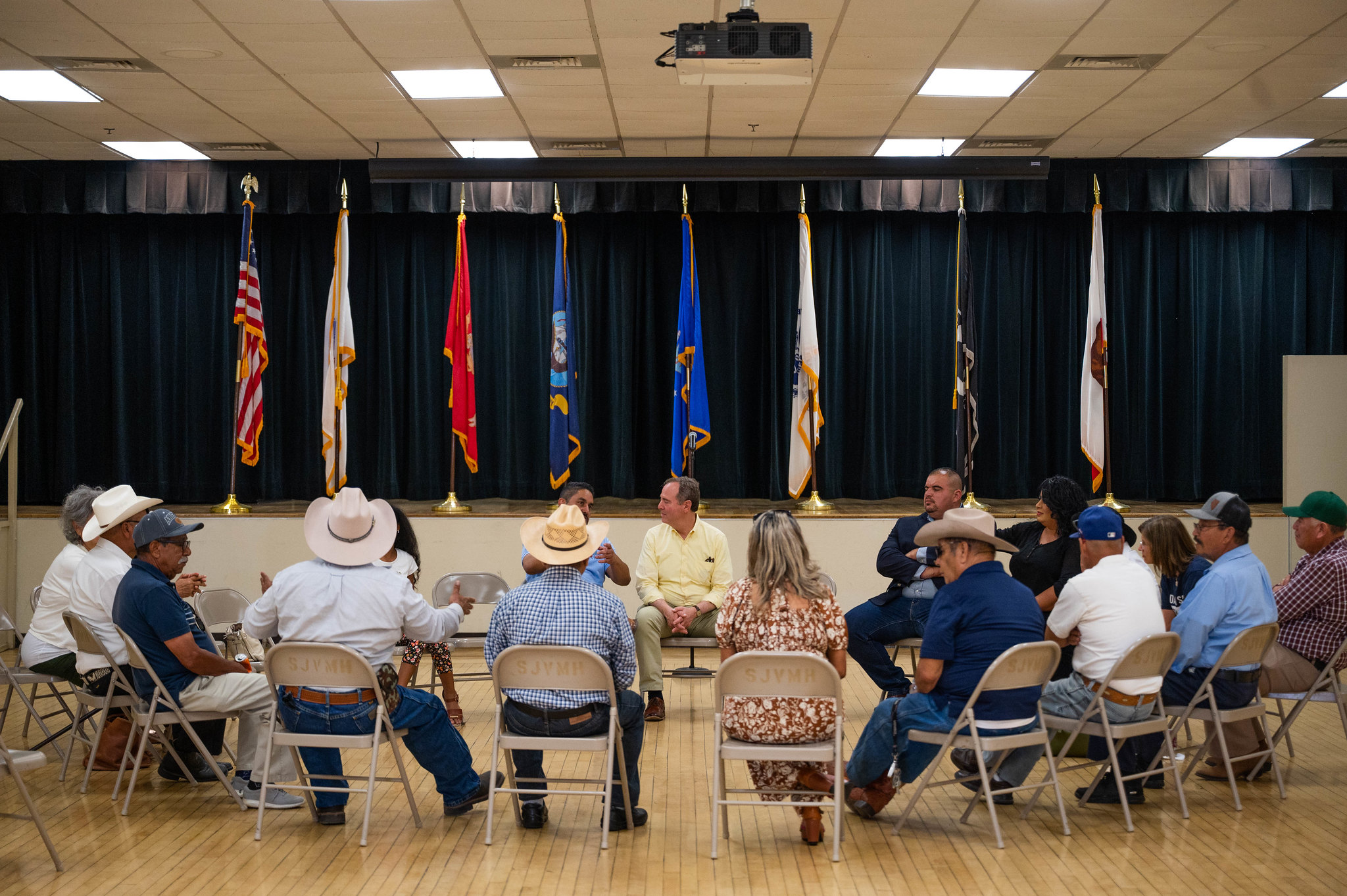
CLEANING UP ENVIRONMENTAL HAZARDS
Adjust The Permitting Process For Oil Rigs To Hold Polluters Accountable
The federal government should make sure that cleaning up an oil spill is more costly than meeting the standards that prevent spills in the first place. Many oil rigs are already too old by industry standards, but corporations claim it costs too much to replace them and get new permits. The federal government should prohibit oil companies from renewing their permits if they fail to adequately clean up after an oil spill.
Hold Companies Accountable For PFAS Contamination
Manufacturers of PFAS (perfluoroalkyl and polyfluoroalkyl substances), have known of the health risks associated with PFAS for decades. Companies that have polluted water sources must be held accountable, and we need to provide sustained funding for PFAS screening so communities can address PFAS in their water supply. We should extend and expand the funding provided for PFAS contamination in the Bipartisan Infrastructure Law beyond five years to help more communities remediate their drinking water.
Increase Federal Funding For Oil And Gas Site Reclamation
Reclamation–the process of restoring a natural ecosystem after it has been used for oil and gas production–can be a critical tool for economic revitalization, first, by cleaning up environmental hazards and second, by enabling redevelopment of valuable remaining infrastructure. The federal government can help with reclamation efforts by increasing baseline funding for federal reclamation programs, providing matching funding for private reclamation projects of fossil fuel sites, and expanding Department of Energy financing options to help deploy much-needed private investment to ensure safe and swift reclamation.

CONSERVING OUR NATURAL ECOSYSTEMS
Prohibit Oil And Gas Leasing Off The Coast Of California
In 2018 the Trump administration released a five-year offshore leasing plan that proposed opening up the entire West Coast to new drilling despite the widespread opposition of Pacific coast states. Congress should pass legislation prohibiting oil and gas leasing off the coast of California to make sure that presidential administrations can’t open up offshore drilling.
Preserve Our Natural Lands, Expand National Monuments, And Protect More Of California
California is home to 48 million acres of federally protected land. We have an obligation to preserve our state’s natural resources. Much like Senator Feinstein, Adam will be a champion for preserving, protecting and conserving natural wildlands across the state. One example of how we can do this is by passing the Rim of the Valley Corridor Preservation Act, Adam’s legislation would add more than 191,000 acres of the Rim of the Valley Corridor to the Santa Monica Mountains National Recreation Area.
Protect And Preserve Our Kelp Forests
There has been a 95% decline in Northern California’s kelp forests since 2014. California is considering a proposal to expand vital marine refuges surrounded by critical kelp habitat and a new marine reserve off the coast of Santa Cruz. The federal government should create a grant program to conserve, restore, and manage kelp forest ecosystems.